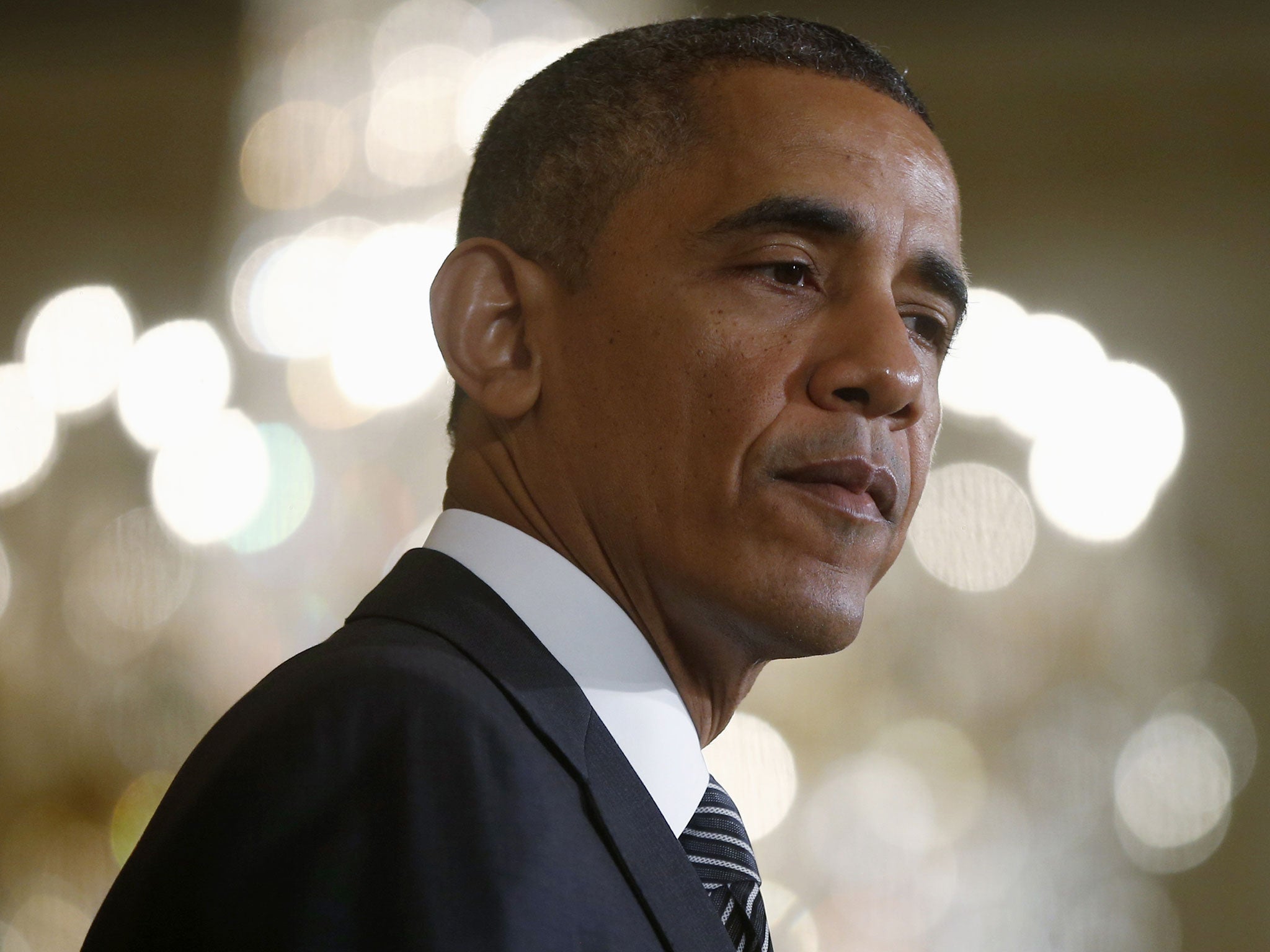NSA row: Pressure increases on White House to explain intelligence gathering
President Obama said he wants to reassess NSA spying powers to ensure 'what they are able to do, doesn’t necessarily mean what they should be doing'

Your support helps us to tell the story
From reproductive rights to climate change to Big Tech, The Independent is on the ground when the story is developing. Whether it's investigating the financials of Elon Musk's pro-Trump PAC or producing our latest documentary, 'The A Word', which shines a light on the American women fighting for reproductive rights, we know how important it is to parse out the facts from the messaging.
At such a critical moment in US history, we need reporters on the ground. Your donation allows us to keep sending journalists to speak to both sides of the story.
The Independent is trusted by Americans across the entire political spectrum. And unlike many other quality news outlets, we choose not to lock Americans out of our reporting and analysis with paywalls. We believe quality journalism should be available to everyone, paid for by those who can afford it.
Your support makes all the difference.The White House today faces mounting pressure to explain allegations of the extent of intelligence operations when the head of the intelligence agency and other officials testify before the House of Representatives later this afternoon.
Earlier yesterday, Senator Dianne Feinstein, chairwoman of the Senate Intelligence Committee, issued a statement condemning any intelligence gathering on leaders of US allies and called for a “total review of all intelligence programmes”.
Miss Feinstein stressed that "with respect to NSA collection of intelligence on leaders of US allies — including France, Spain, Mexico and Germany — let me state unequivocally: I am totally opposed", adding that the US should not be "collecting phone calls or emails of friendly presidents and prime ministers" unless in an emergency with approval of the president.
This meeting this afternoon comes after Washington was forced to deny reports President Barack Obama knew that German Chancellor Angela Merkel’s mobile phone was under surveillance and did not move in to prevent her communications from being monitored.
Ms Merkel is one of 34 foreign leaders who has been monitored for years, according to intelligence leaks from NSA whistleblower Edward Snowden.
President Obama told ABC’s Fusion network on Monday evening that national security operations were in the process of being reviewed to ensure that in light of the NSA’s increasing technological expansion and development "that what they are able to do, doesn’t necessarily mean what they should be doing.”
He added that they are given “policy direction”, although he would not comment on specific eavesdropping allegations, including the phone tapping of friendly foreign leaders.
Speaking yesterday, Jay Carney, White House spokesperson said the Obama administration recognised “there needs to be additional constraints on how we gather and use intelligence.”
Asked if the NSA intelligence gathering had been used not only to protect national security but American economic interests as well, White House spokesman Jay Carney said: “We do not use our intelligence capabilities for that purpose. We use it for security purposes.”
National Security Council spokeswoman Caitlin Hayden added: “We do not use our intelligence capabilities to give US companies an advantage, not ruling out that we are interested in economic information.”
NSA head Gen Keith Alexander is due to testify alongside other experts before the House of Representatives at 1.30pm (5.30pm GMT).
Join our commenting forum
Join thought-provoking conversations, follow other Independent readers and see their replies
Comments